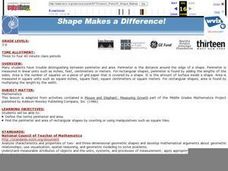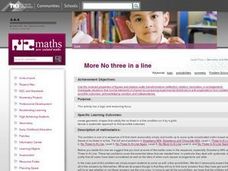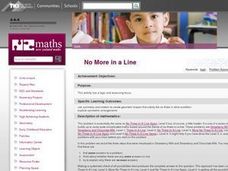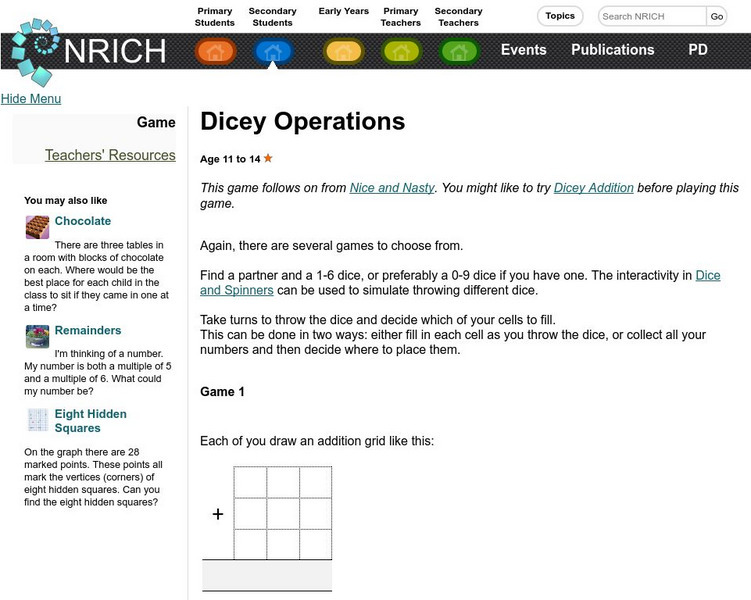Curated OER
What's My Ratio?
Young scholars investigate ratios of various objects. In this ratios of various objects lesson, students draw pictures on graph paper and then dilate or shrink the image. Young scholars determine the ratio of their...
Curated OER
You Are Invited to Design and Build a Dream Room
Seventh graders watch a video and enlarge and shrink scale by applying proportional thinking. They practice measuring, using percentages, computing area, and problem solving.
Curated OER
Creating the Model
Pupils comprehend what has been explored in the previous earthquake engineering design lessons, by putting their designs to the test.
They are given pairs a piece of paper, and an empty plastic bottle or can. Students stand the bottle...
Curated OER
Grade 2: Spinning Sums
Second graders collect data by spinning two spinners and creating sums, organize the data, and make conclusions from the data. Each students makes a spinner. They spin and record the number of the section each time. Students work in...
Curated OER
2 Digit Subtraction Worksheets with Regrouping
In these subtraction worksheets, students will subtract single and double digit subtrahends from double digit minuends. Students will need to regroup to solve.
Curated OER
Place Value
First graders practice place value by completing problems that allow them to group 10 items together to create groups of 10 and see what is left over. In this place value lesson plan, 1st graders use cups to put 10 items in them, and...
Curated OER
Does the falling tree make a sound if no one if there to hear it? (or communication via encryption)
Students explore encryption. They discuss the importance of cryptography in our daily lives. Students use games and cryptography to discover transformational geometry and modulo systems. They design their own encryption puzzles and...
Curated OER
Shape Makes a Difference!
Students learn the difference between perimeter and area by watching a video and a hands on activity.
Curated OER
Tantalizing Tangrams
Fourth graders participate in what is considered to be a model lesson. The lesson focuses upon polygons and basic geometry. The lesson addresses national standards and displays how others should be done.
Curated OER
And Around We Go!
Sixth graders conduct a survey and collect data to construct a bar graph that will then be changed into a circle graph. With the bar graph, 6th graders compare estimated fractions and percentages and estimate percentages. With the circle...
Curated OER
More No-Three-In-A-Line
Fourth graders read Mary's problem and make sure that they examine it.
After some discussion, let the class work on the problem in their groups.
They then take turns in putting a picture of their arrangement on the board.
Curated OER
No-More-In-A-Line
Students and teacher discuss square windows and their symmetry. Students work on the problem given and discuss any difficult ideas. They work in groups to use a systematic approach to get all possible answers.
Curated OER
Cube Models
Sixth graders are introduced to the concepts of area and volume. In groups, they work together to build models of square centimeters in which they are given no instructions. To end the lesson plan, they record the dimensions of each...
Maths Challenge
Maths challenge.net: Shaded Grid
A "one star" geometry problem that requires finding the visual pattern and applying logic with basic math skills to find the patterns.
University of Cambridge
University of Cambridge: Nrich: Dicey Operations
Dice throwing games are played with a 0-9 dice and teams of two. Students should understand why are some cells more significant than others, how do you decide which targets are appropriate, and what are effective strategies for placing...

















